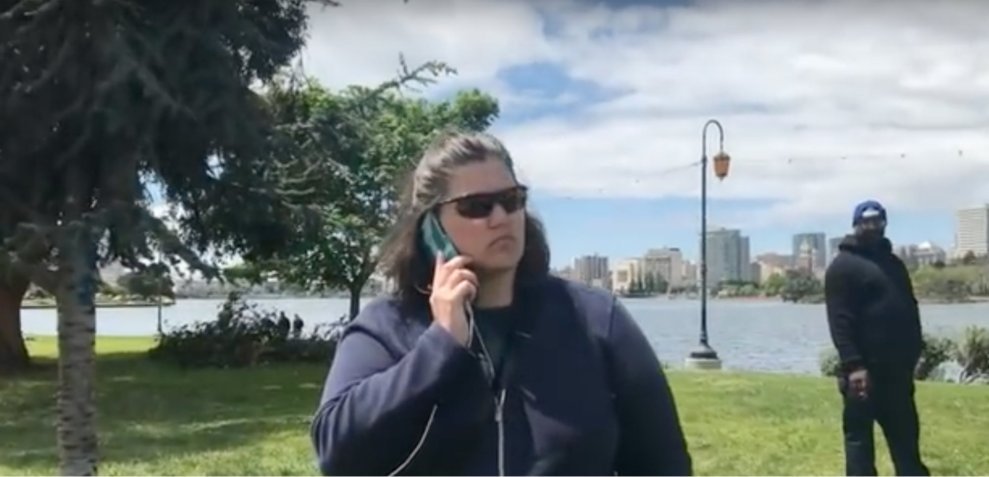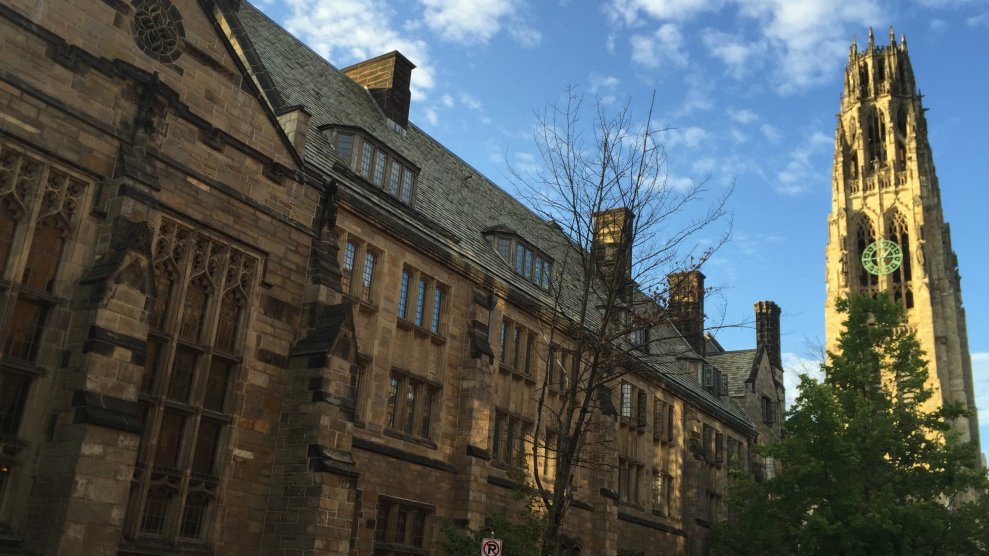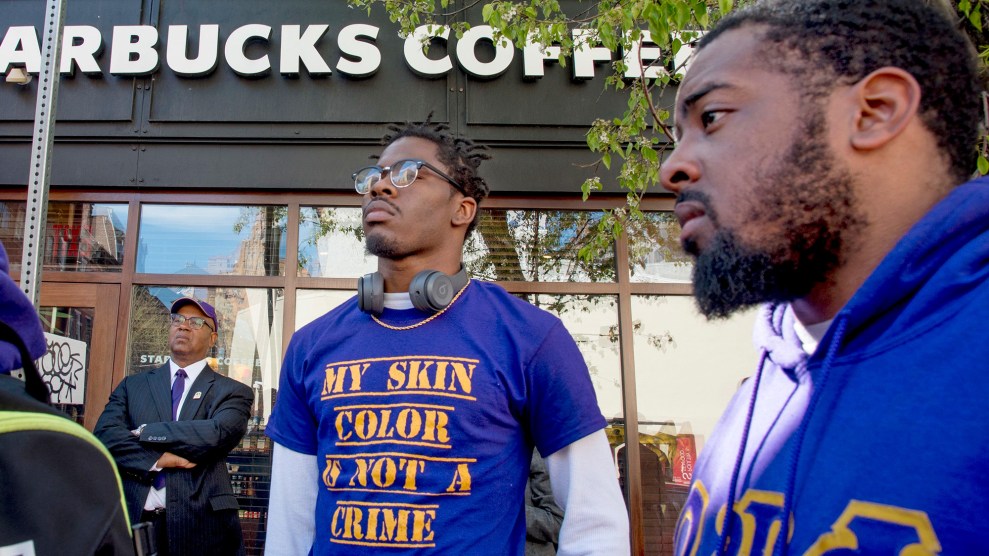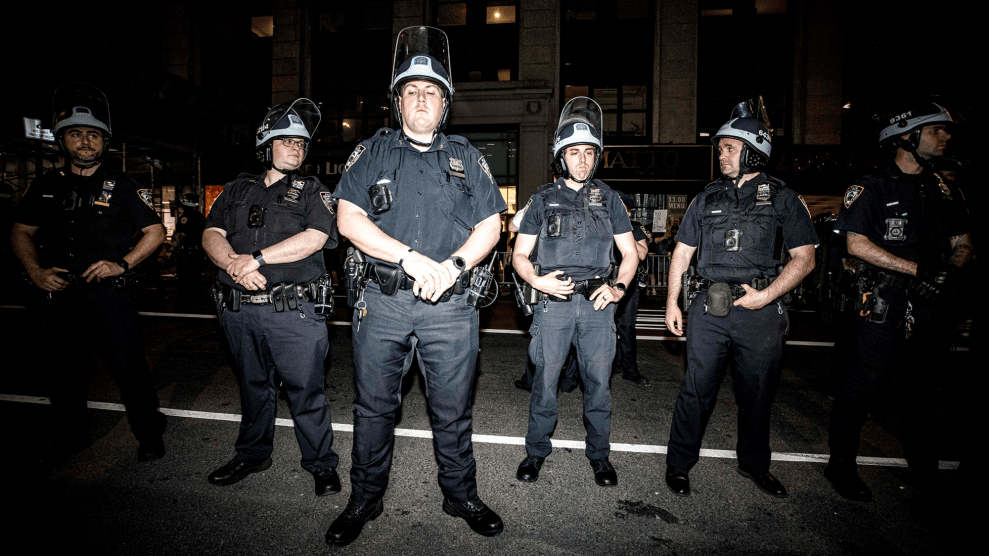
A screenshot of the viral video of the now infamous April 29 incident in which a white woman called the police on two black men barbecuing on a lake in Oakland, California.Michelle Dione/YouTube
Dozens of black Oaklanders showed up at a City Council meeting last night to vent their frustration about an April incident—captured in a viral video—wherein a white woman called the police on a group of black folks grilling with charcoal at a lakeside spot designated for gas grills only.
The episode—one of a string of similarly problematic encounters that have made national headlines over the last month—has become a new rallying point for locals who feel profiled by police, store clerks, or everyday citizens based on their skin color.
Organizers and community members who spoke out at the council meeting demanded changes to park rules regulating conduct around Oakland’s Lake Merritt, arguing that the rules are disproportionately enforced against African Americans. They also asked that fines be imposed on people who abuse the city’s emergency resources by making needless 911 calls.
“The assault on black life is not an isolated set of circumstances,” Carroll Fife, the lead organizer for a local group that encourages black women to get involved in electoral politics, told council members. “The recent emergency phone call from Jennifer S”—the name of a woman identified on Twitter as the caller, but whose identity remains unconfirmed—”a white woman angered by an African American family barbecuing in an unauthorized location at Lake Merritt, highlights how anti-black racism is used in a way to control black bodies and used in a way to control space.”
“We don’t want any more apologies,” she continued. “We don’t want any more business cards. We don’t want any more forums. What we want is you all to take note and take account.”
On April 29, Kenzie Smith and Onsayo Abram were setting up for a barbecue on the east side of Lake Merritt, a popular hangout spot, when a woman approached them about their use of a charcoal grill. She quickly called the police on the men, waiting almost two hours for the officers to show up, according to Smith’s wife, who recorded the encounter. The men say the caller told them they weren’t welcome at the lake and that they were going to jail. Smith, who also spoke at Tuesday’s City Council meeting, said the woman even called them the N-word. “I felt like she was saying blacks weren’t welcome,” he told the online blog the Panther Times last week.
Fife, who organized a symbolic barbecue rally outside City Hall in advance of the meeting, also asked council members to investigate how often city resources are wasted on similar 911 calls and to look into whether the woman who sicced the police on Smith and Abram should be prosecuted. At the rally, which attracted about 50 people, several speakers noted that the caller had apparently lied to the officers when she told them, as she can be heard doing in the video, that the men were harassing her and had pushed her. Both men say that’s not true—she harassed them. The nearly 25-minute video doesn’t show any physical contact.
The video, which has more than 1.4 million views on YouTube and many more on other platforms, was fodder for at least one late-night talk show last week and sparked the hashtag #BBQBecky as well as numerous memes, in which internet users photoshopped the caller into images ranging from an iconic photo of Rosa Parks to a fight scene from Black Panther.
The barbecue incident was not, in fact, on the council agenda, but people spoke out anyway during the public forum at the start of the meeting. “You may think you can do nothing about the one white lady who harassed the black family at Lake Merritt, but you can,” one woman said. “You can pass an ordinance that fines abusers of OPD (the Oakland Police Department) and 911. You can develop police protocols on how not to respond to calls that are racist or prejudicial in nature. You can fund civil servant positions in parks and other departments that can respond to nonemergency situations.”
Another man suggested that council members were more attuned to the concerns of local animal rights activists than to those of African Americans. “When you gonna start talking about black folks?” he boomed, slamming his hand on the podium. “Every time it comes up, you remain silent!”
Fife, who had signed up to speak at the end of the meeting, instead spoke at the beginning after audience members chanting “Let her speak!” drowned out council members who had asked her to wait. When she finished, another local organizer led a chant of “All power to the people!”
Oakland spent at least $120 million on revitalizing Lake Merritt and the surrounding area between 2002 and 2015, adding landscaping, repaving streets, and adding foot and bike paths, according to the alt-weekly East Bay Express. After many of the renovations were finished in 2013, Oakland residents flocked to the area for picnics and parties—white residents, often newcomers, apparently dubbed it “Dolores Park East,” a reference to the popular park in San Francisco. Not long after, residents in the apartment buildings on the lake’s heavily residential east side began to complain about trash, loud music, and, in the case of at least one incident in which a toddler was burned by a hot coal on the ground, barbecuing.
The city passed regulations limiting some activities to certain hours and prohibiting others entirely, though not all the regulations are actively enforced. Still, some black residents feel the remaining rules are enforced unfairly against them—and that nearby residents pushed for rules targeting their gatherings. One such rule, since relaxed by the city, was a musical-instruments ban that black Oaklanders saw as a way to quash the African drum circles that have long convened at the lake on weekends. More than a dozen police officers descended on a group of drummers one day in 2015 after a white resident called to complain about noise. Astonishingly, according to a City Hall speaker who was involved in that incident, the drummers were detained for several hours,
The speakers expressed concern that further gentrification will exacerbate the overpolicing of black people and lead to more incidents like the barbecue encounter. In another 2015 incident, a predominately black church, situated in West Oakland for more than 60 years, received a citation from the city threatening more than $3,500 in fines after neighbors complained that its choir rehearsal was too loud. At least seven other churches have received “courtesy notices” from the city following complaints about noise and other apparent annoyances, according to the San Francisco Chronicle.
Several local residents and journalists live-tweeted Tuesday’s discussion of the barbecue incident. At least two council members called for an investigation by the police department or the council, while a third noted concern about “racial profiling” by Oakland residents using Nextdoor, a social-media platform that allows people to discuss goings-on in their neighborhoods:
Kaplan asks that the city council to follow-up on what happened at Lake Merritt and wants to encourage white ppl to be wary of what it means when they call the police. #oakmtg #oakland
— TDL (@tdlove5) May 16, 2018
Kaplan wants a discussion about BBQ'ing while Black incident at Lake Merritt: "make sure we don't have rules creating more danger"#oakmtg
— Darwin BondGraham (@DarwinBondGraha) May 16, 2018
Brooks says the Lake incident is one of many. Sent email to city admin and opd chief asking how they had cops to send so frivolously. Asked them to do a formal investivation. Need to make examples of these people calling 911 without cause #oakmtg
— Trash Night Heron (@hyphy_republic) May 16, 2018
Last week, Black Oaklanders held a protest barbecue in the location where the incident took place—another, larger one is scheduled for May 20. The community group Urban Peace Movement also responded to the viral video by leading a march around part of the lake last Thursday.













